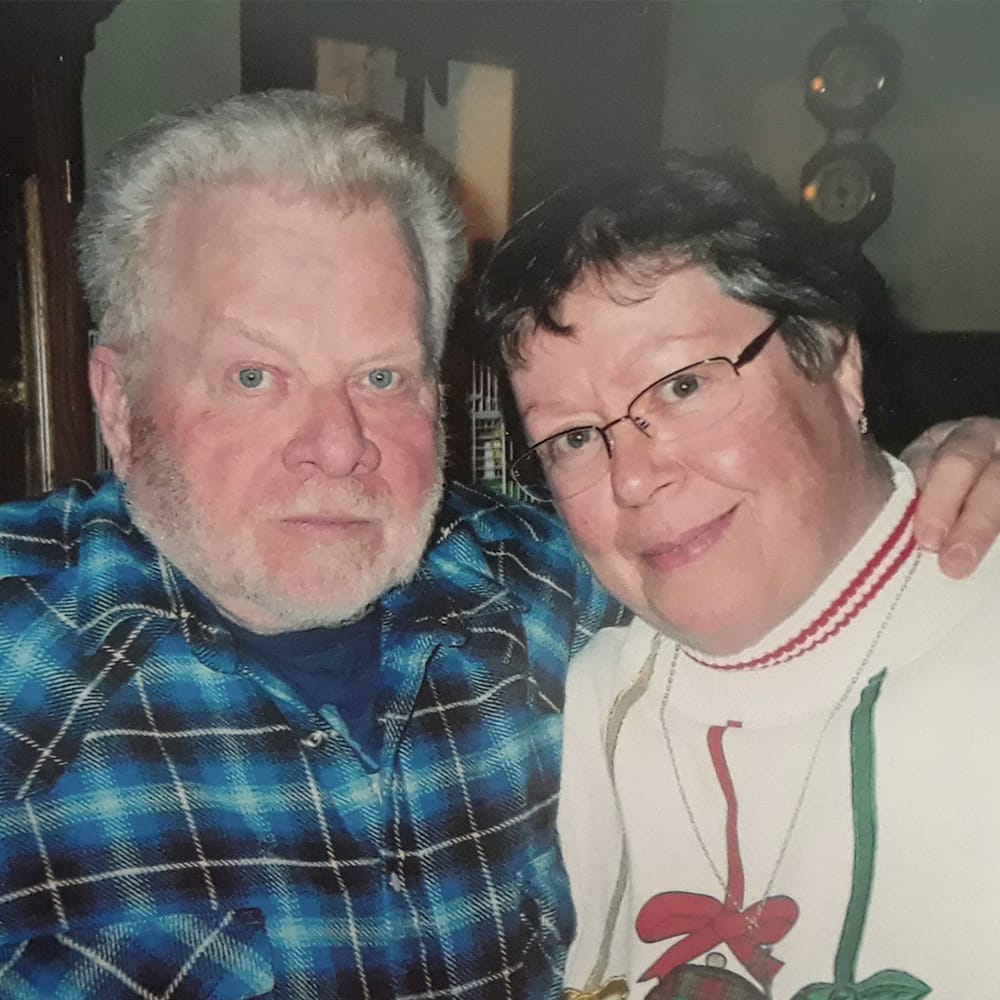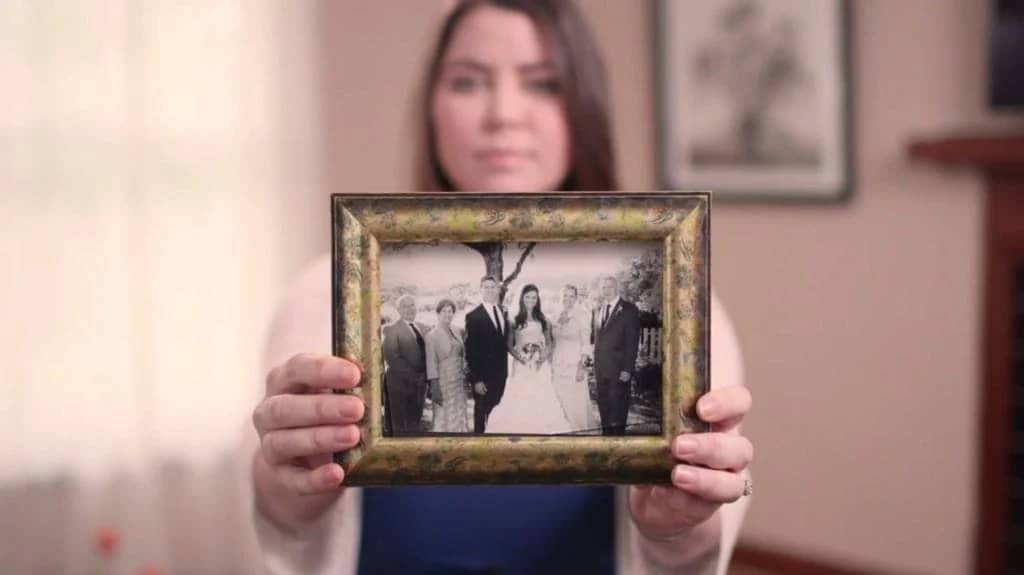
Julianne shared her story in February of 2023.
If you believe that terminally ill residents in Minnesota should not have to suffer like Julianne’s husband did, add your name here.
For many years, my husband, Don, and I took regular fishing trips together. I remember saying more than once, “Don, we should be putting this money in our savings account for when we retire.” And he would always say, “Julie, we have to do this while we still can. Because there’s going to come a day when we can no longer do this.”
Don was right.
I met Don through a friend in the mid-1970s. He had a stoic personality — quiet, often kind of standing back in a crowd. But he had a great sense of humor. Every now and then, he’d toss out a comment that would have people dying of laughter. And he went out of his way to be kind and caring to everyone he met.
After years making a wonderful life together on a small hobby farm near Faribault, Minnesota, we could no longer keep up our little farm. We sold our place in 2015 and moved to the community of Dundas. But we didn’t get to enjoy our time here for very long. In late summer 2016, I noticed that Don seemed unusually exhausted. He would go work in the garage for 10 minutes and have to come back into the house to lie down.
One day I said, “Don, you have to see a doctor. There’s something wrong.”
Don went to see his doctor, but then he didn’t come home for three or four hours. Later, I learned that he had been sent to the hospital because his hemoglobin count was so low and he needed blood transfusions. The doctors told him that he was bleeding internally. It turned out that he had a bleeding tumor in his esophagus. The cancer was stage 4.
We went to the Mayo Clinic in Rochester, where they recommended chemotherapy, radiation and then surgery. Don decided to go for it. Over the next two months, he underwent chemo and radiation and the related side effects — extreme nausea, no appetite, just feeling terrible.
In early December, Don started getting blood clots in his legs. The chemo and radiation had already exhausted him. At that point, he said, “Forget it. I want to go on hospice.”
Don was in a lot of physical, mental and emotional pain. He felt strongly that he should get to decide what the end of his life would look like, but without the option of medical aid in dying in Minnesota, he lacked the control he wanted. Don was already in his late 70s, and I was not far behind; at our ages and given Don’s physical state, there was nothing we could do but stay where we were and wait.
Or at least that’s what I thought. When Don was diagnosed in September, I asked him, “Do I have to be concerned that you are going to take your own life?” Six years earlier, our 19-year-old grandson had died by suicide, so we knew the impact and the tragedy of suicide. Don assured me that he would never do such a thing. I took his hands and looked him in the eyes and said, “Do I have your word on that?” He told me I did. Don was the kind of person whose word was written in stone.
A few weeks after Don started hospice, I was in the bathroom brushing my teeth when I heard a strange noise in the hallway. I stepped out of the bathroom and there was Don, staggering down the hall. I said, “Don, what are you doing?”
“I’m going to the basement,” he said. “I’m going to get my gun.”
“No, you’re not,” I said. I turned him around and got him back into bed. We phoned hospice immediately, and soon the hospice nurse and social worker arrived.
At first, Don was reluctant to talk to the social worker. I went into the bedroom and said, “Don, do you remember when you were first diagnosed with this terrible cancer? And I said to you, ‘Do I have to be concerned that you are going to take your own life?’ And you gave me your word that you would never do that?” Don said, “Yes.” The social worker broke in: “Don, what happened between then and now?”
The pain in Don’s quiet voice was palpable. “I didn’t know it was going to be this hard.”
The social worker asked Don what he wanted us to do. “I want you to keep me heavily sedated,” he said. And that’s what they did.
Don died nine or 10 days later, on January 19, 2017.
Don had told me he didn’t want a “standard funeral.” He wanted a party. “I want you to serve the food that I like and that I have liked all my life, and I want to have free beer so that if people want to have some beers, they can do that, and I want you to play all the good music that I like.”
So I had a big party with spaghetti, apple pie and beer. And we had a four-hour celebration of Don’s life complete with a playlist with songs from all kinds of genres, except opera (he wasn’t so fond of opera). It was wonderful. Afterward, so many people said, “That’s the kind of send-off I would want.” I just kept thinking, “Don would have loved this.”
If Don had had the option of medical aid in dying in our home state, he might have never considered ending his life violently and alone. By contrast, the option of medical aid in dying might have provided him some much needed peace of mind that there was a gentle exit. We could have spent Don’s last days reminiscing about our life together. He could have participated in his life celebration, surrounded by his friends and family and favorite foods. But with Don so heavily sedated, there was no conversation. There was no choice.
If you’re thinking about suicide, are worried about a friend or loved one, or would like emotional support, I encourage you to call or text the National Suicide Prevention Lifeline at 988. Talking with someone about your thoughts and feelings can save your life.

Nothing advances our common cause of improving end-of-life care like real stories. Inspire others and drive change by sharing your story today.
Mail contributions directly to:
Compassion & Choices Gift Processing Center
PO Box 485
Etna, NH 03750